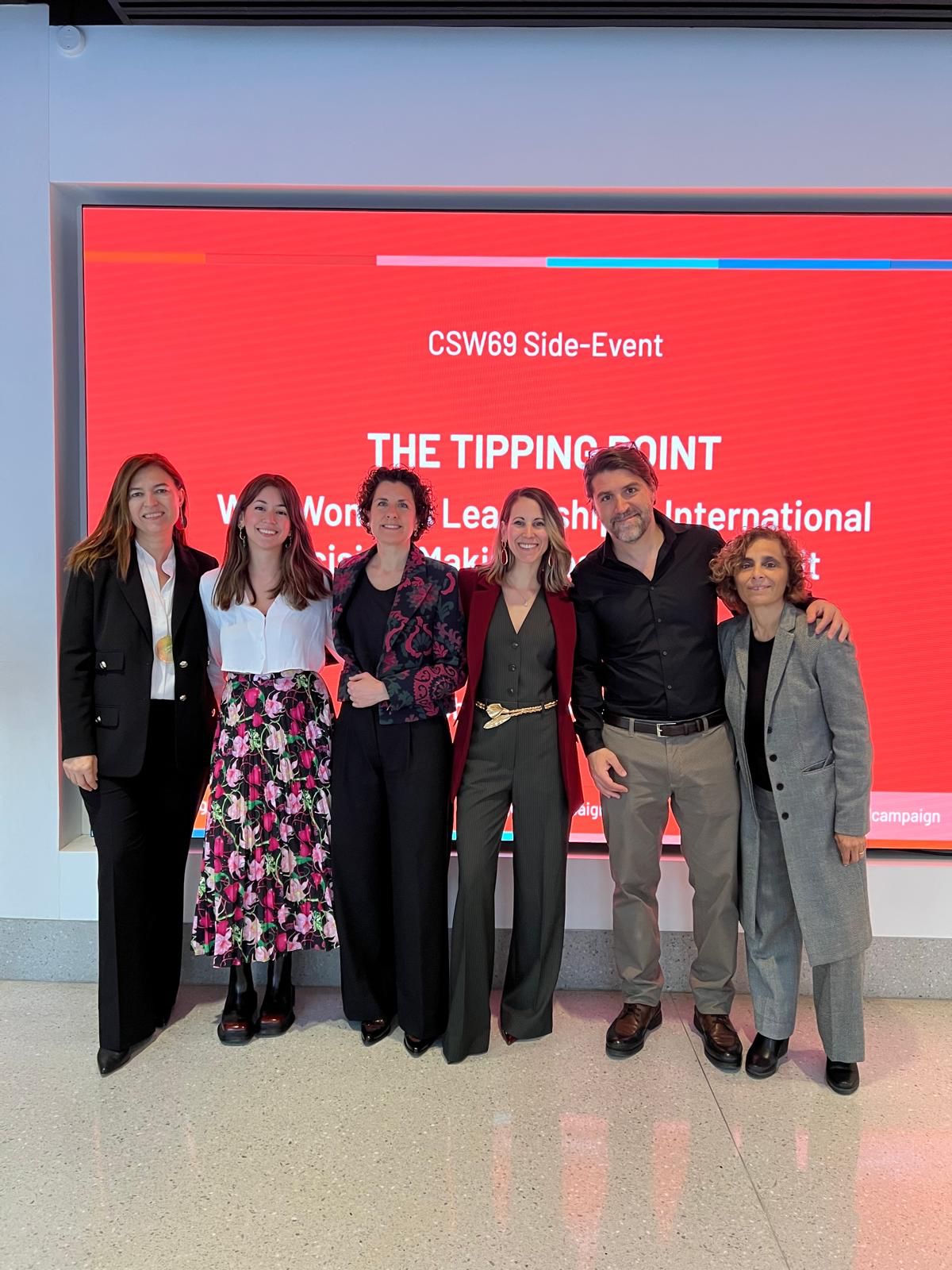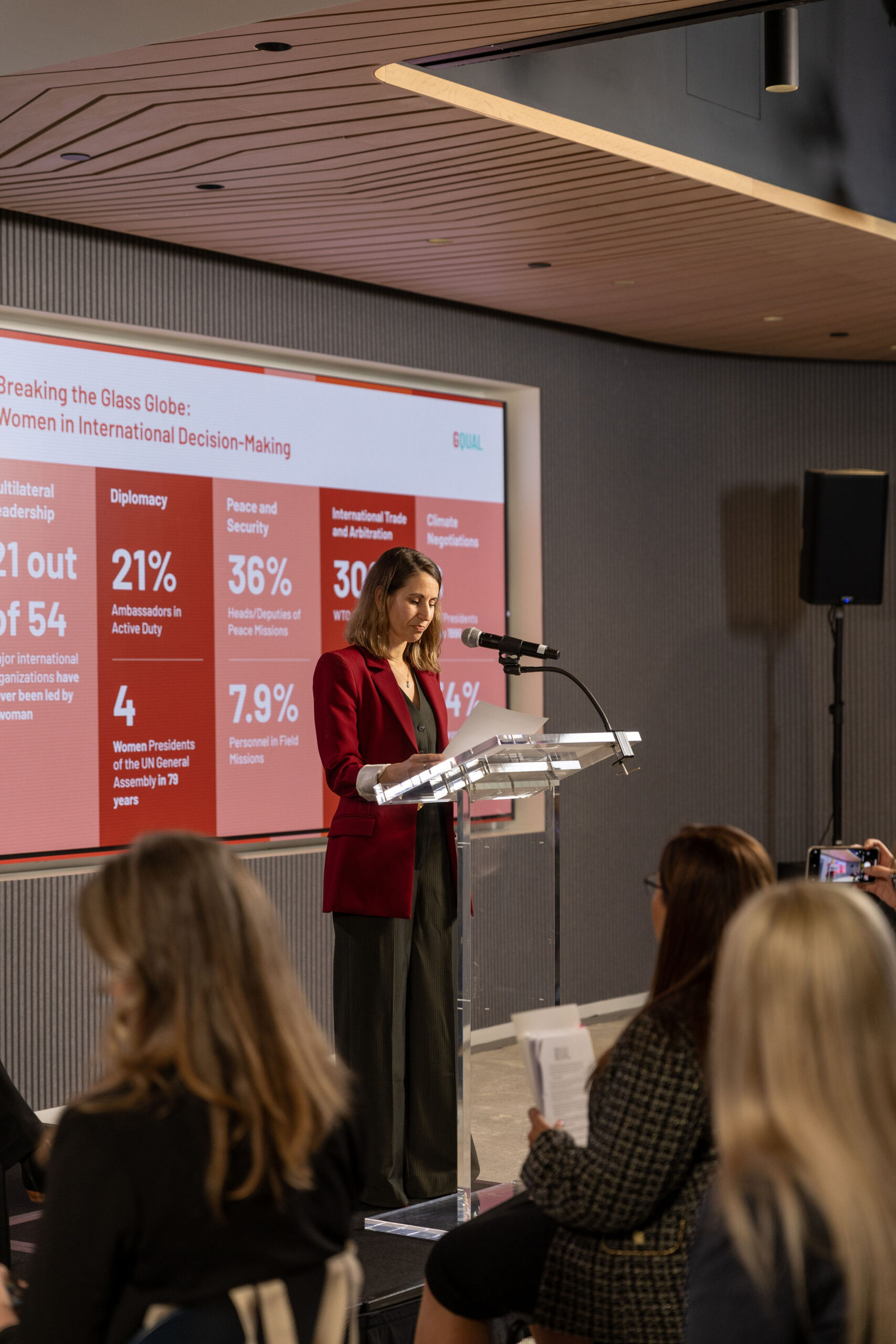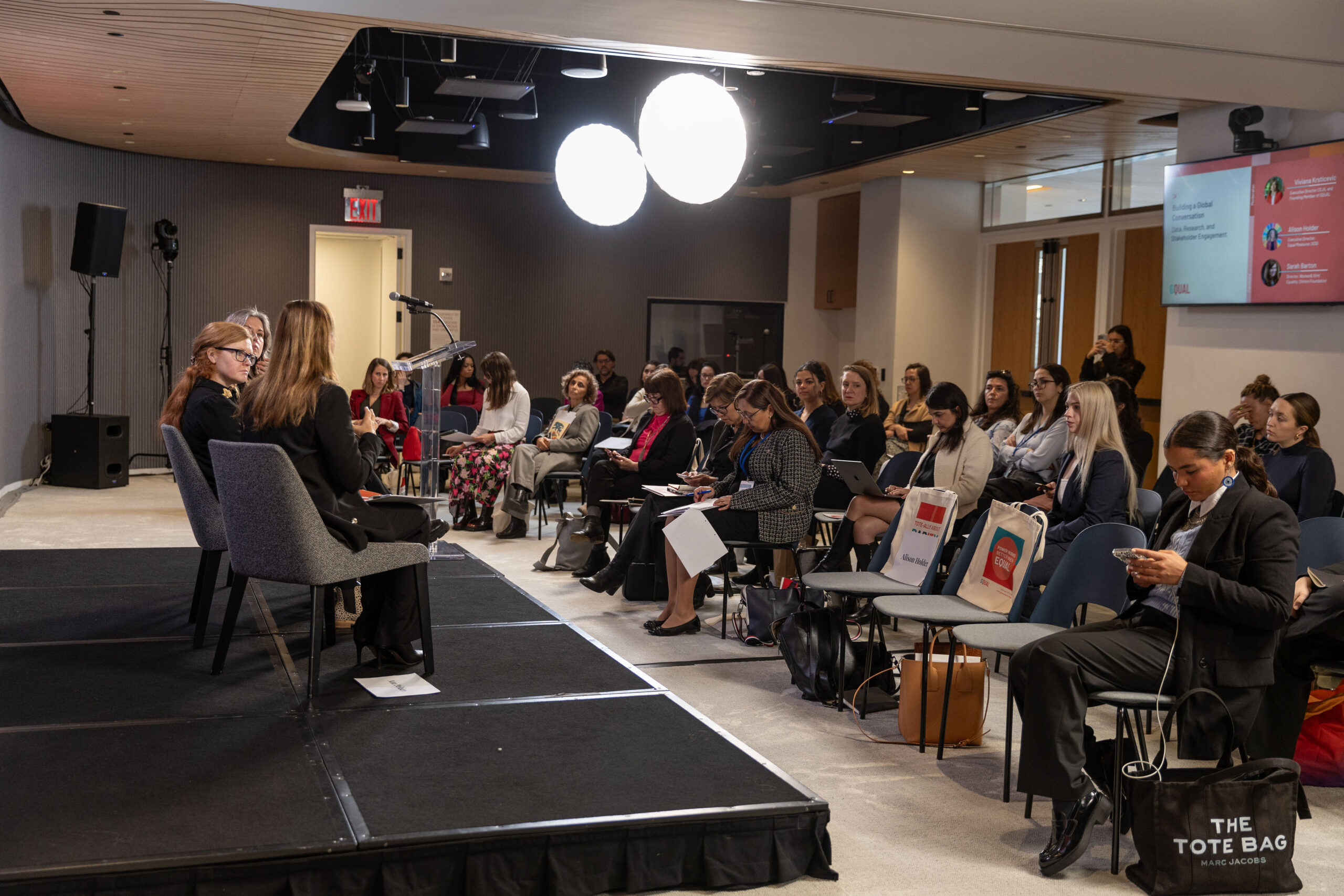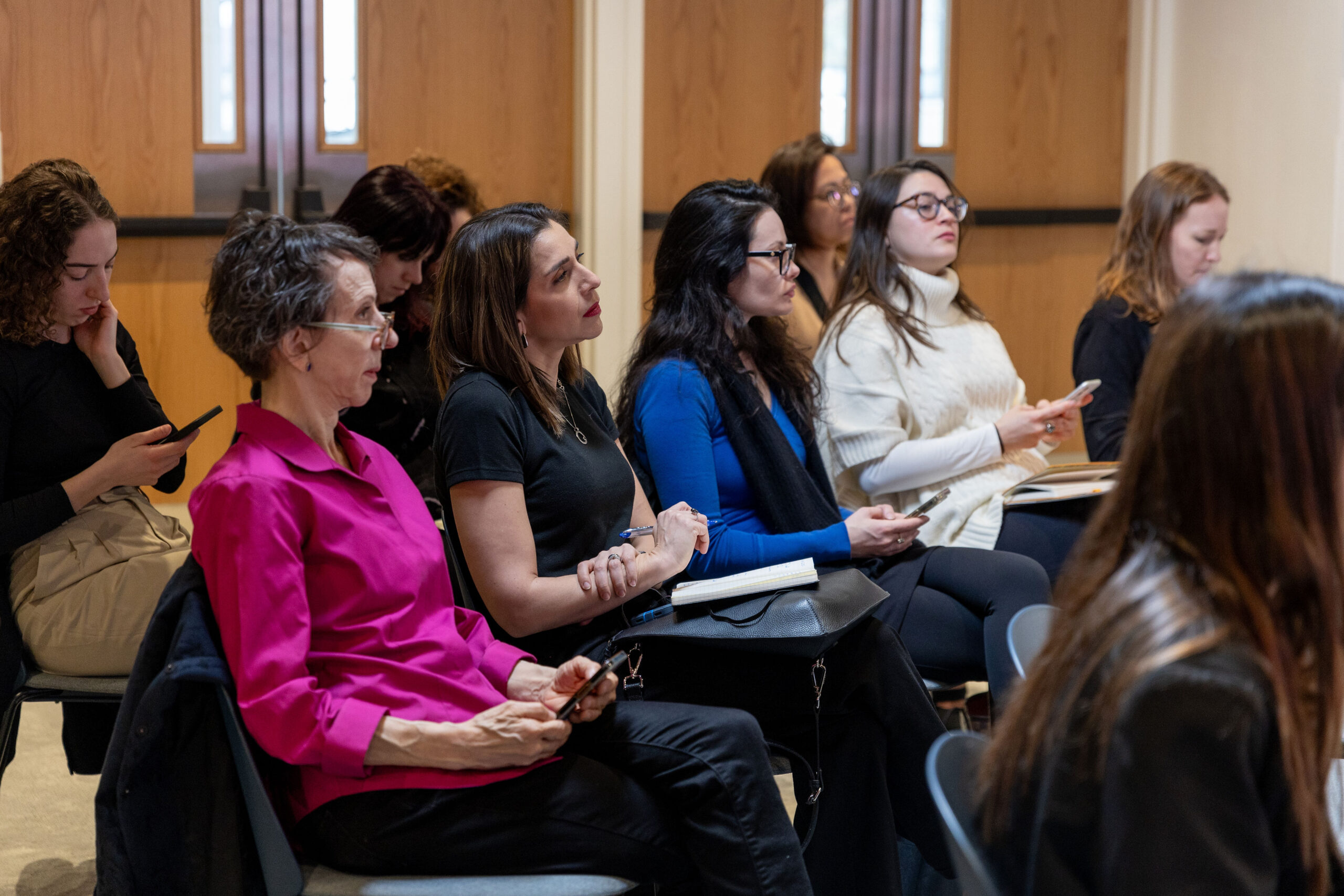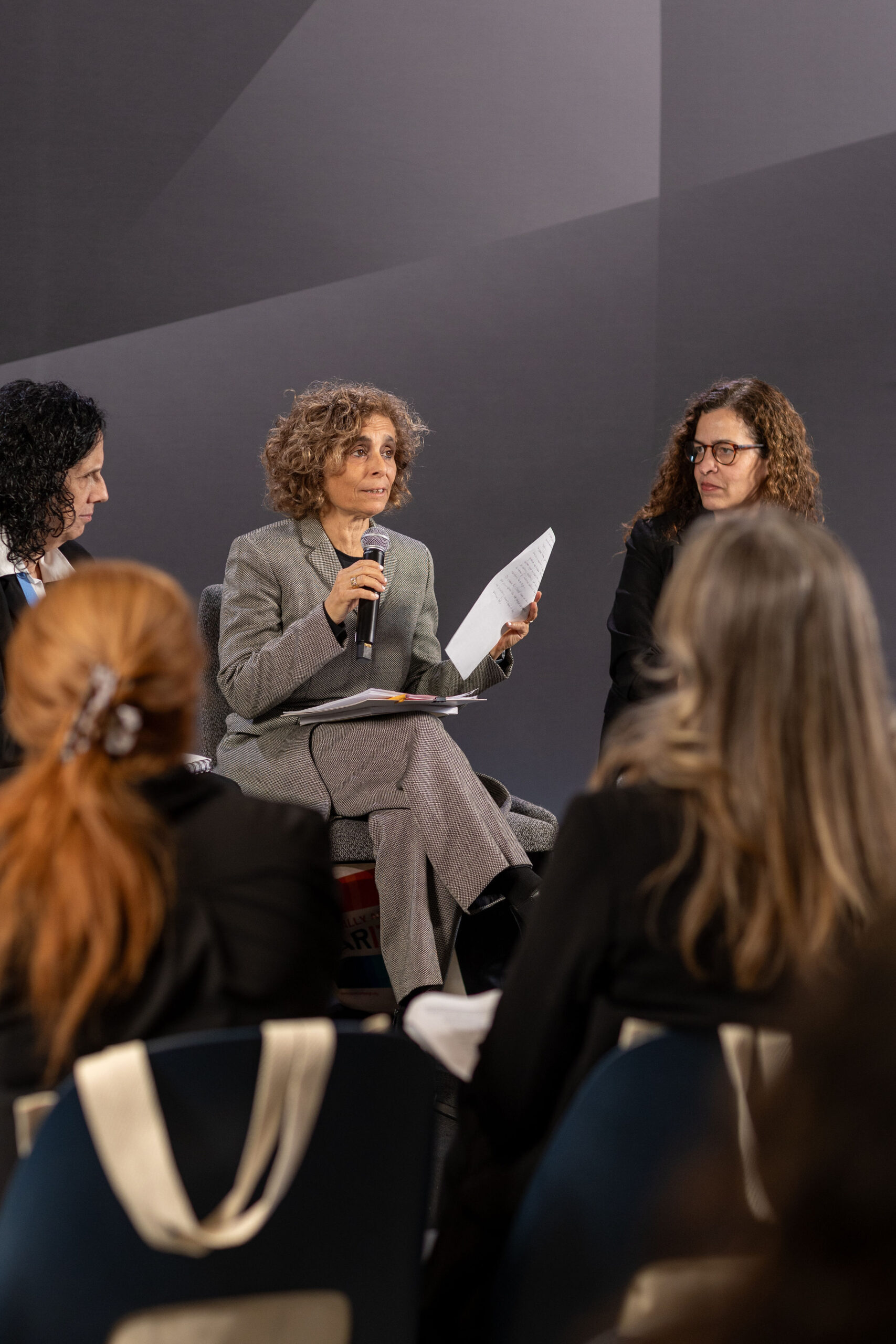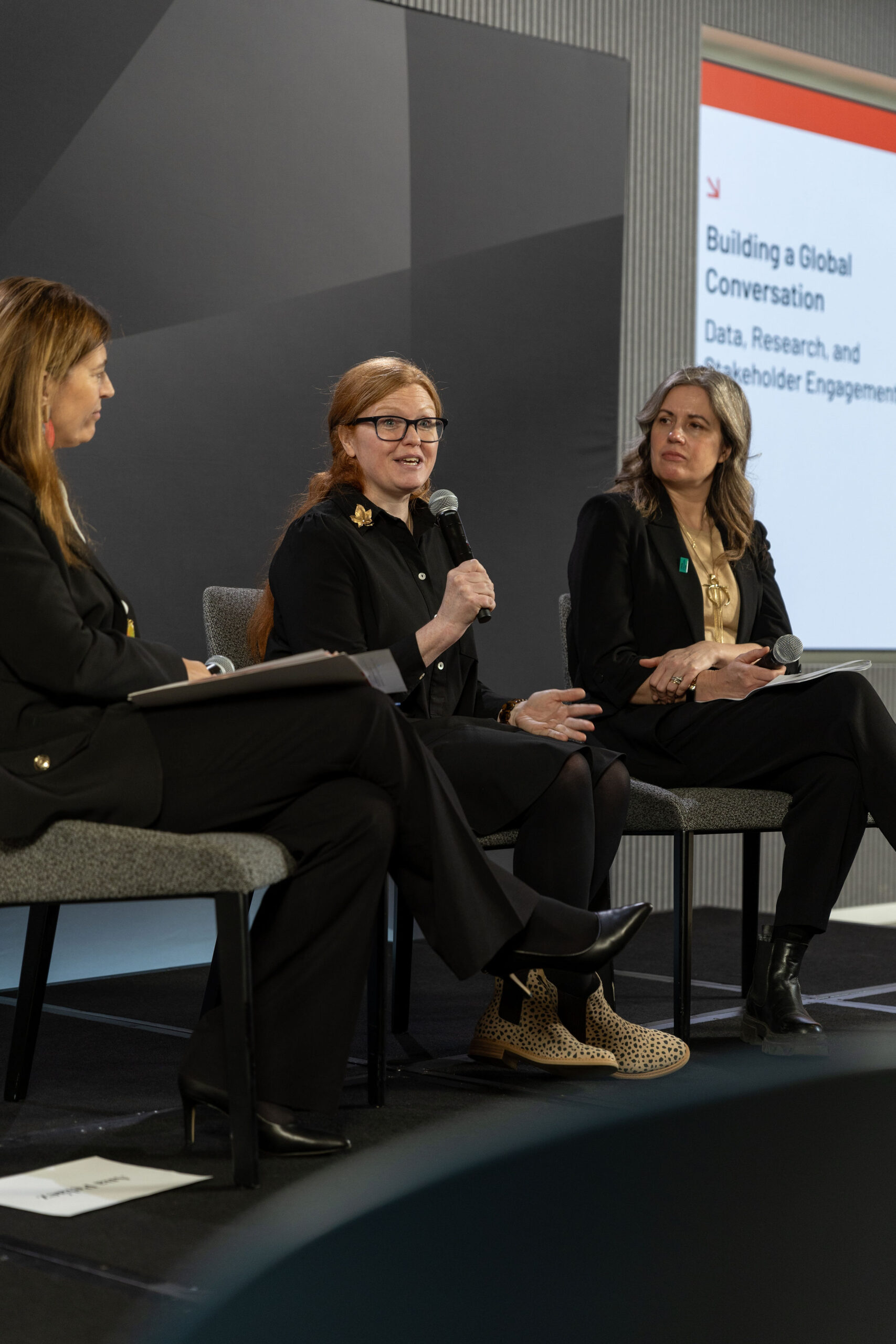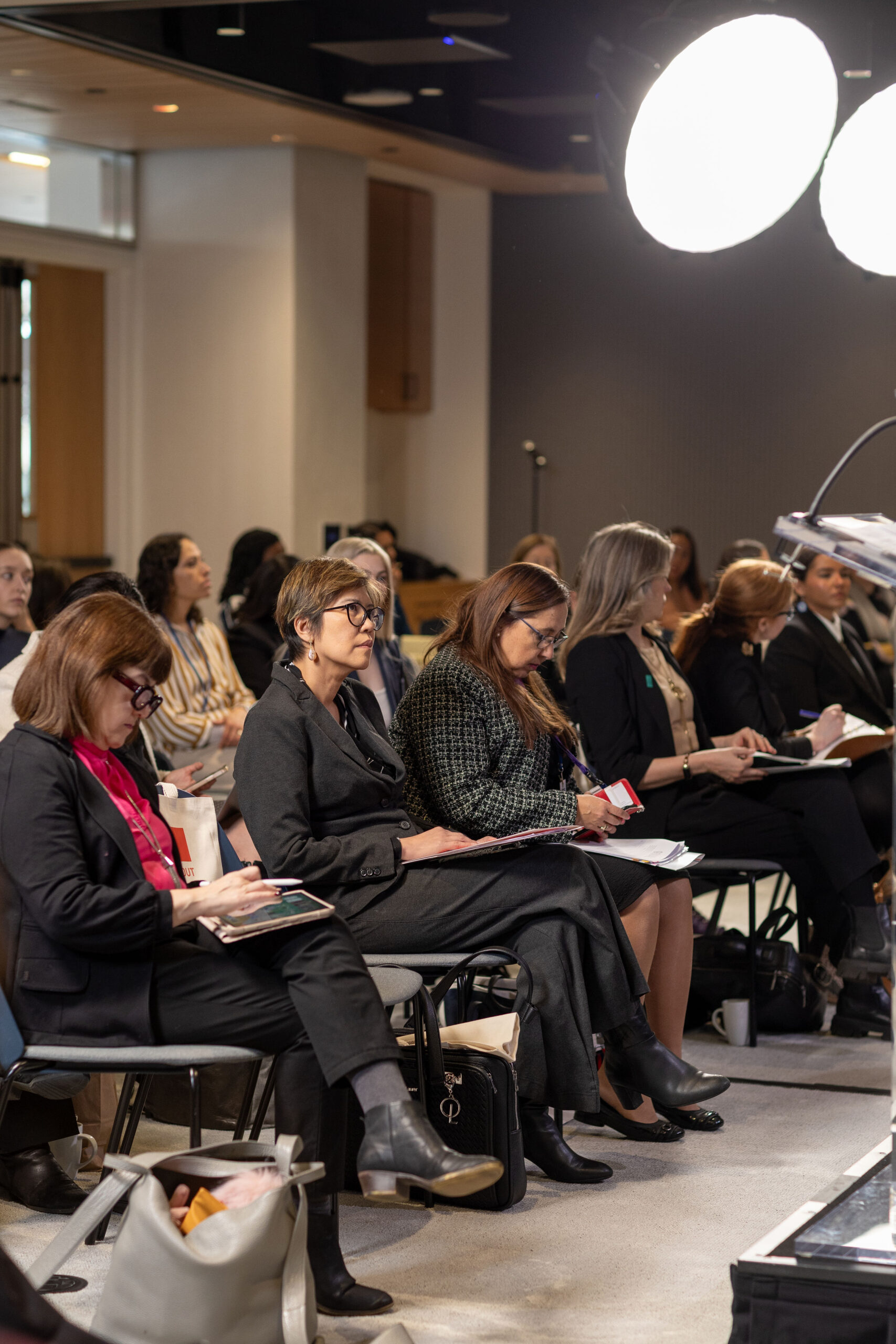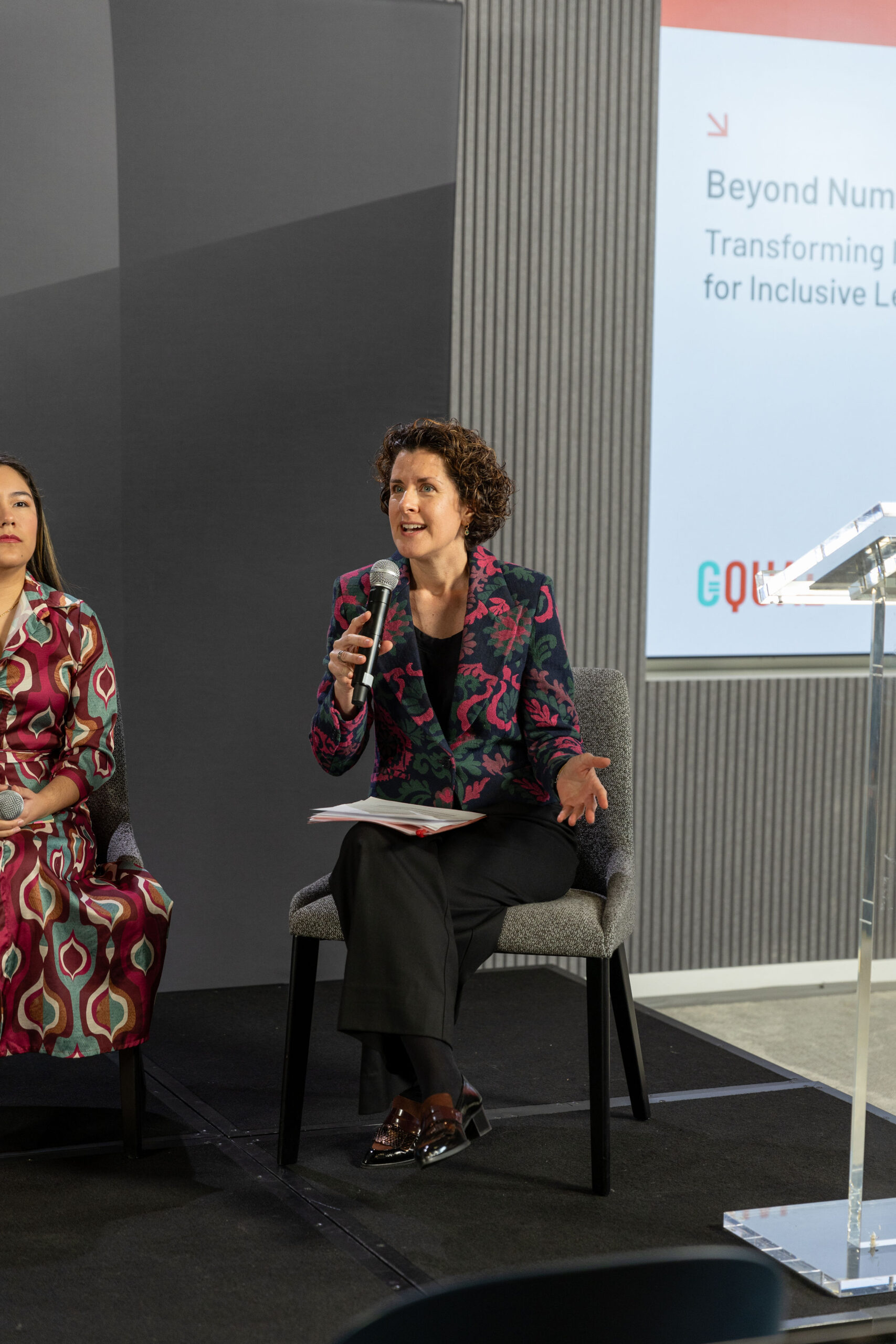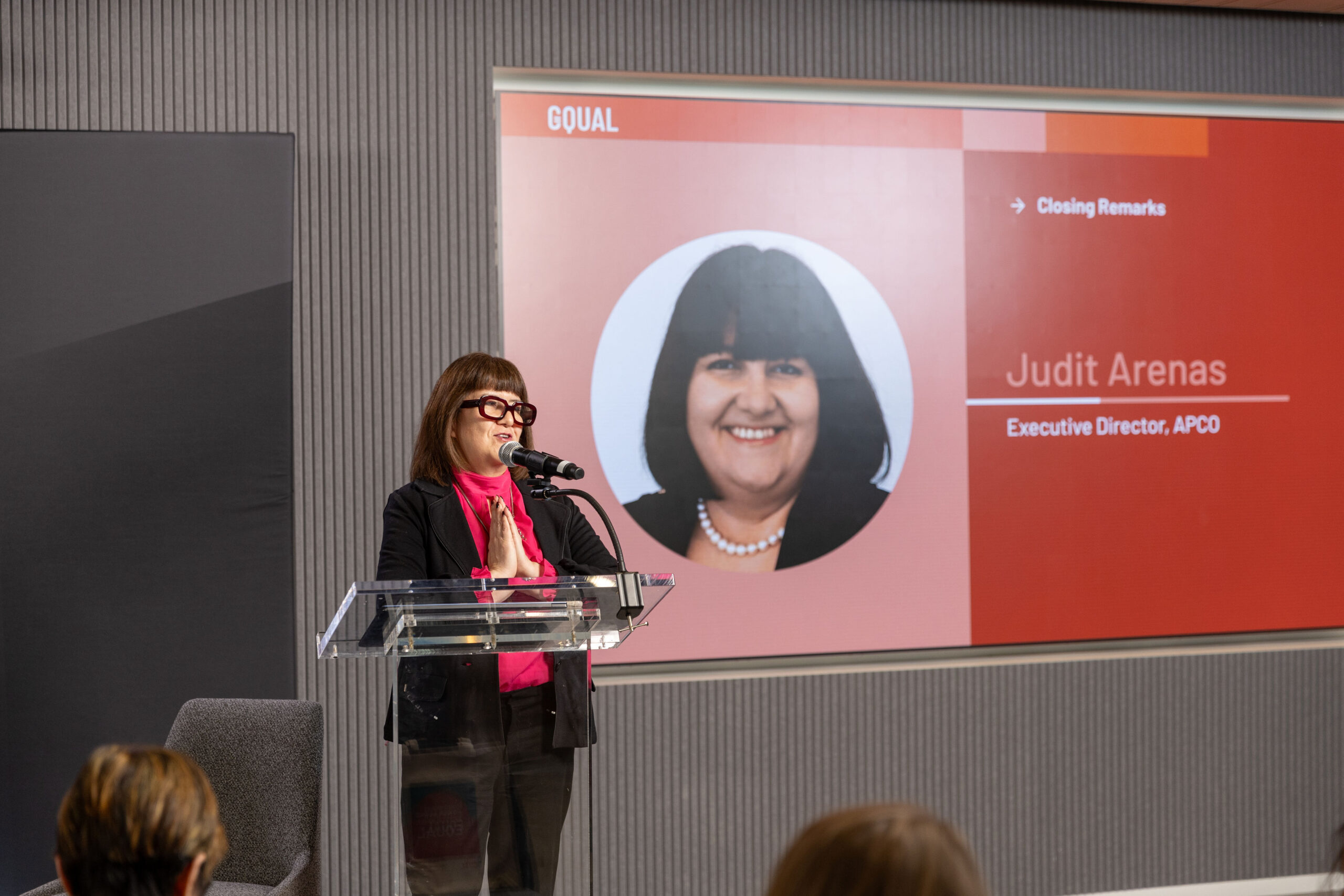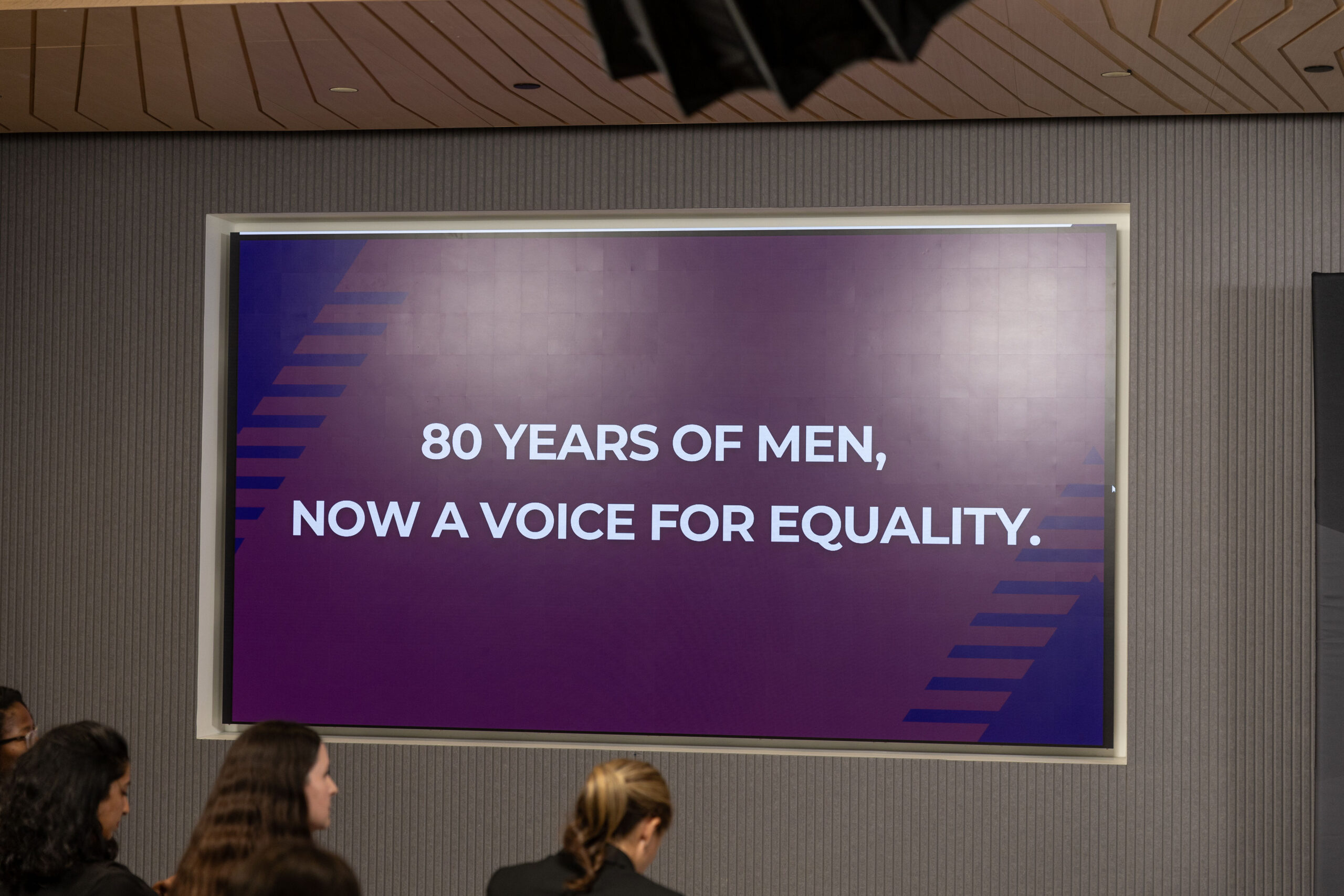The Tipping Point: Why Women’s Leadership in International Decision-Making Spaces Can’t Wait
Reflections from GQUAL’s Side Event at the 69th Commission on the Status of Women (CSW69)
As CSW69 kicked off, a powerful message echoed through the halls of the Rockefeller Foundation: At a time when the global rule of law faces mounting threats, achieving women’s equal representation in international decision-making is more urgent than ever. This isn’t just about fairness—it’s a proven strategy for tackling today’s most pressing challenges. The Tipping Point: Why Women’s Leadership in International Decision-Making Spaces Can’t Wait—an event organized by the GQUAL Campaign—served as a pivotal moment to assess progress, confront persistent barriers, and chart the path forward.
María Noel Leoni, GQUAL co-founder and Campaign Director and Deputy Executive Director for the Center for Justice and International Law (CEJIL), set the tone with a stark reality check. Thirty years after the Beijing Declaration affirmed that women’s rights are human rights, these principles face mounting resistance. Rising polarization, conflict, and backlash against the rule of law, human rights, and gender equality are undermining global governance at a time when it is needed most. As international institutions grapple with urgent crises—ranging from armed conflicts and climate change to unregulated technologies and widening inequality—women’s equal participation is not just a matter of justice. It is essential to making decisions that are both effective and legitimate.
Yet, the numbers reveal a stark reality. Many of the world’s most influential international institutions remain deeply unequal. María Noel Leoni underscored this imbalance, noting that as of 2023, 21 out of 54 international organizations—including the UN, the Organization of American States, and the International Labour Organization—have never been led by a woman. International justice spaces are no exception, and GQUAL was born to transform this specific reality. Still today, only 4 out of 10 UN Treaty Bodies have reached parity. At the UN Special Procedures, seven positions have still never been held by women. At the current rate, the International Court of Justice will not achieve gender parity until after 2050, with only six female judges compared to 109 men.
However, progress is not only possible—it’s happening. As GQUAL marks its 10th anniversary, the strides made are clear and worth celebrating. Over the past decade, the gender gap in international justice bodies has narrowed by 65%. Women’s representation in these spaces has risen from 32.5% in 2015 to 44% in 2024—a powerful foundation to build on in the push for full equality.
This progress reinforces a key lesson: institutional change happens when three elements align—Law, recognizing gender parity as a legal obligation; Facts, using data, research, and sound arguments to expose gaps and drive accountability; and Allies, a diverse coalition of stakeholders committed to pushing for change.
Strengthening the Legal Foundations for Equality
Representation isn’t just important or effective — it’s an international legal obligation. Women have the right to equal representation in every decision-making space, including at the international level. Grounding this demand in international law reinforces state obligations to take positive action, strengthens accountability, and anchors the task ahead in the principle of equality.
Claudia Martin, Co-Director of the Academy of Human Rights and Humanitarian Law at American University and co-founder of GQUAL, opened the first panel with a powerful message on the law’s role as a catalyst for change. She underscored the urgency of strengthening human rights mechanisms to counter the growing backlash against gender equality, emphasizing that legal frameworks must evolve to effectively protect women’s representation and participation in global governance. In this context, she highlighted the importance of CEDAW’s General Recommendation No. 40 (GR40)—a new legal framework that GQUAL advocated for—which promotes gender parity as a key standard of equality and its application to international decision-making.
Ana Peláez, CEDAW Member, emphasized that GR40 is a game-changer—it defines gender equality as 50/50 representation, making it a permanent and non-negotiable standard in international decision-making. However, its true impact hinges on effective implementation and enforcement, particularly within international organizations like the UN, which must apply it internally. Ensuring that the recommendations outlined in GR40 are upheld requires continuous monitoring, state accountability, and robust mechanisms to track progress. By embedding these measures into institutional processes, GR40 can evolve from a legal milestone into a powerful tool for creating real and lasting change in global governance.
But legal frameworks alone cannot ensure change. Claudia Flores, Vice-Chair of the UN Working Group on Discrimination Against Women and Girls, emphasized that gender parity remains a contested issue, often resisted under the guise of “meritocracy.” She referenced the Working Group’s 2023 report on masculinities, which examined how deeply rooted gender norms influence leadership and access to power. Flores argued that exclusionary networks and opaque selection processes have long distorted the concept of merit, favoring men in positions of power. This insight reinforces the broader goals of the GQUAL Campaign, which has long championed legal and institutional reforms as essential steps toward achieving true gender parity.
Data, Partnerships, and the Power of Transparency
Promoting data and transparency has been central to GQUAL’s work. We have monitored elections and issued vacancy alerts for over 100 international bodies, creating tools like our Rankings to track state nominations and expose gaps, and resources such as the GQUAL Toolkit, offering clear, step-by-step guidance on international selection procedures, to support more inclusive and transparent practices.
This has shown that transparency and data open doors. Across the bodies monitored by GQUAL, we have seen a 52% increase in women candidates and a 34% rise in candidates from the Global South.
As the second panel began, Viviana Krsticevic, Executive Director of CEJIL and co-founder of GQUAL, set the stage by emphasizing the vital role of research and data as powerful tools for change. She emphasized that, without transparency, inequalities remain hidden, progress is hard to measure, and institutions cannot be held accountable. “Data helps us understand the different stakeholders that are relevant for the pipeline of equality.”
A key driver of change has been the ability to track and expose the persistent gender gaps. Alison Holder, Executive Director of Equal Measures 2030, highlighted the crucial role of data in driving accountability. Based on Equal Measures’ experience using data for advocacy—particularly through their SDG Gender Index, which covers 139 countries and 56 critical gender equality issues across 14 of the 17 Sustainable Development Goals—Holder emphasized how data is essential in bringing diverse actors to the table. She highlighted that data creates a clear, objective framework for discussions and progress, grounded in facts. This evidence-based approach not only strengthens the case for gender equality but also helps drive accountability and action by providing a tangible measure of where we stand and what needs to be done. However, she pointed out that much of the data on women’s representation in the justice sector remains incomplete or inaccessible, creating a significant barrier to pushing for meaningful systemic reforms.
Additionally, Sarah Barton, Director, Women and Girls’ Equality at the Clinton Foundation discussed the pivotal role of multi-sector partnerships in advancing gender equality. Barton emphasized that these partnerships not only accelerate progress but also bring together diverse perspectives, tools, and entry points to common conversations. In light of rapidly evolving technology and the unprecedented attacks women are facing online—through disinformation and harassment—she highlighted a recent initiative aimed at tackling online harassment of women in politics. This initiative brought together non-profits and corporate partners to better understand the impact of misinformation and AI-driven threats on women’s political participation. Barton emphasized that these partnerships accelerate progress by harnessing the expertise of diverse sectors—democracy advocates, tech experts, and policymakers—all united in the pursuit of the same goal.
Transforming Institutions for Sustainable Change
Without institutional change, progress remains fragile and dependent on individual efforts. At GQUAL we believe that gender parity must become the norm, ensuring women not only have equal access but also the ability to thrive and influence power equally.
Alejandra Vicente, Head of Law at REDRESS and co-founder of GQUAL, led the third panel by emphasizing the critical importance of collaborating with state representatives and institutions to ensure that institutional processes are both fair and transparent. She stressed the need for measures that actively support women’s participation and leadership. Vicente highlighted that, in many cases, nomination procedures lack transparency, and international voting often functions more like a vote-trading system than a merit-based selection process. This, she argued, underscores the urgent need for clear parity measures to guarantee equal opportunities for women in leadership roles, ensuring that their representation is not left to chance but is institutionalized through consistent, transparent practices.
Ambassador Carla Serazzi of Chile presented a groundbreaking approach that has set a powerful precedent in her country and serves as a key measure in implementing its Feminist Foreign Policy: the creation, by the Ministry of Foreign Affairs, of a transparent, gender-balanced committee to nominate candidates for international bodies. This model ensures that gender parity is not treated as an afterthought but as an integral requirement in every selection process, marking a concrete step toward institutionalizing gender equality in leadership roles. Serazzi’s approach exemplifies how proactive, structural measures can drive lasting change in global governance.
Rea Abada, Senior Legal Advisor at IDLO emphasized that even when women break through barriers, they often encounter additional challenges in maintaining leadership roles. She highlighted that IDLO has long been working on addressing women’s equal participation in the justice system. To address underrepresentation in these spaces, admission and appointment procedures need to become more transparent, fair, and based on merit. But transformation needs to go beyond this, as many legal institutions continue to operate under a male-centric definition of expertise, which hinders women’s ability to access and thrive. To address this, she called for reforms that go beyond simply increasing women’s participation, advocating for a transformation of institutional cultures to become more inclusive and supportive of diverse leadership styles and perspectives.
One of the most critical elections ahead is the selection of the next UN Secretary-General—a position that has never been held by a woman, and whose outcome will have ripple effects on global leadership. Claudette Segura, who has been researching global attitudes on this issue at the NYU Center for Global Affairs, shared insights from an initiative created in partnership with the #1for8Billions Campaign and the Global Network of Women PeaceBuilders. The initiative maps government positions on electing a female UN Secretary-General. While 28 countries have taken a firm stance in favor and proposed actionable steps, others have only signaled support or remain indifferent, with some even resistant. Segura emphasized the critical need for coalition-building to transform passive support into concrete action, highlighting that collective advocacy is essential to overcoming this long standing barrier.
As the event drew to a close, Judit Arenas, Executive Director of APCO, reminded everyone that progress made over the past decade has been significant, but backlash against women’s rights remains a real and growing threat.
“We must celebrate achievements while recognizing the work that still lies ahead,” Judit stated, adding that GQUAL has shown that progress is possible, but we need more actors around the table—including from the private sector—to drive sustainable change.
GQUAL extends its heartfelt thanks to all the panelists for their invaluable insights and to the participants for their active engagement in the discussion. A special thank you to the Rockefeller Foundation for hosting this important event and to Co-Impact for their continued support of GQUAL’s work. Together, we are laying the foundation for a future where gender parity in international decision-making is not just an aspiration, but a reality. While the road ahead may be challenging, today’s conversations reaffirm that through collaboration, dedication, and unwavering commitment, we can drive meaningful change. Let us move forward with renewed determination to continue advocating for equal representation and building a more just, inclusive world for all.

